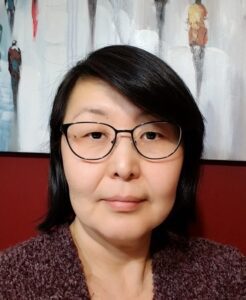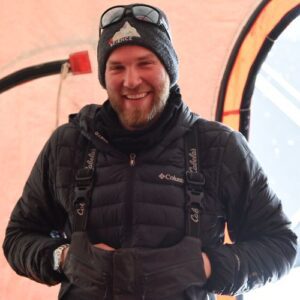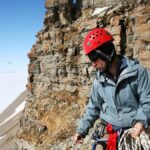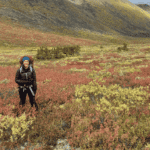As ArcticNet’s Annual Scientific Meeting for 2021 winds down, Arctic Science (on behalf of its publisher, Canadian Science Publishing) and ArcticNet Student Association want to thank everyone who attended the workshops, topical sessions, and presentations throughout the week. We were particularly excited by the level of engagement from students and early career researchers who entered our Student Feature Contest. The winners of this contest and their research are featured below. They will also be included in this month’s Arctic Science newsletter (sign up here to receive the latest in Arctic research sent straight to your inbox!).
Without further ado, the winners of the ASA x CSP Student Feature Contest are…
Lena Dedyukina, University of Ottawa, MA Geography, 2nd year

The research project investigates a Nutrition North Canada (NNC) cooking circle program in the Arctic hamlet of Paulatuk, in the Inuvialuit Settlement Region, Northwest Territories. This study is part of a long-standing research program on food security with ISR communities and the CIHR-funded project focused on community capacity for climate change and food security action in the Northwest Territories. This research combines both process and outcome evaluations within a COVID-adapted community-based participatory research, including the hiring of a regional Food Security Coordinator and ongoing virtual collaboration with community researchers.
I chose to work in the North because of my interest in applied research. After completing an undergraduate study with a major in Sociology and a minor in Indigenous Studies, I knew that I wanted my future research project to be practical and address existing societal issues to find solutions or support existing initiatives. I’m originally from the northeast part of Russia. I grew up in a town above the Arctic Circle. A possibility to work in the Canadian North provides an opportunity for me to see the beauty of the Arctic again.
Agnieszka Lisonek, University of Amsterdam, IBED, Geo-ecologic Dynamics, 2nd year
My research focuses on updating the inventory of tidewater and surge-type glaciers in central East Greenland. It also aims to calculate the area that peripheral glaciers lost due to glacier fronts retreating during the last 20 years (2000-2020).
I believe that the northern part of our globe has a significant influence on the rest of the Earth. Glaciers from Greenland, Svalbard or the Canadian Arctic may contribute to sea level rise, therefore exacerbating the consequences of global warming which will affect not only local communities but also people from other parts of the world. It is highly important to dive deeper into the Arctic processes and dynamics correlated with ice, land, and the sea. The flora and fauna of this region is extremely diverse and vulnerable to any changes, therefore additional measures are required to protect it.
Cody Carlyle, University of Manitoba, MSc in Biological Sciences, 3rd year

My research is focused on trying to understand how ringed seals respond to dramatic changes in sea-ice conditions over their large latitudinal range in the Canadian Arctic. Specifically, I am investigating how ringed seal density, distribution, and diet changes from low to high Arctic with aerial surveys and samples collected in partnership with northern communities in Nunavut such as Arviat, Pond Inlet, Grise Fiord and Alert, and Qaanaaq in Greenland. I hope the results of my work will inform conservation and Arctic communities trying to adjust to impacts to Arctic species and ecosystems with continued sea-ice recession.
I have been amazed by these unique sea-ice-based ecosystems during my time spent studying and working in the Arctic. I love the interconnectedness of these ecosystems and how all components can influence each other — from the sea-ice and algae living in the ice, all the way up to the seals living on the ice and the polar bears that rely on them. Further, I am humbled by how well northerners understand and are connected to these ecosystems. I am passionate about learning how all parts of these ecosystems interact through scientific inquiry and what northerners already know.
Congratulations to the three winners of the ASA x CSP Student Feature Contest and thank you to everyone who entered!
And don’t forget to follow the ArcticNet Student Association and Arctic Science on Twitter to be the first to hear about upcoming contests, conferences, and the latest in Arctic research.




